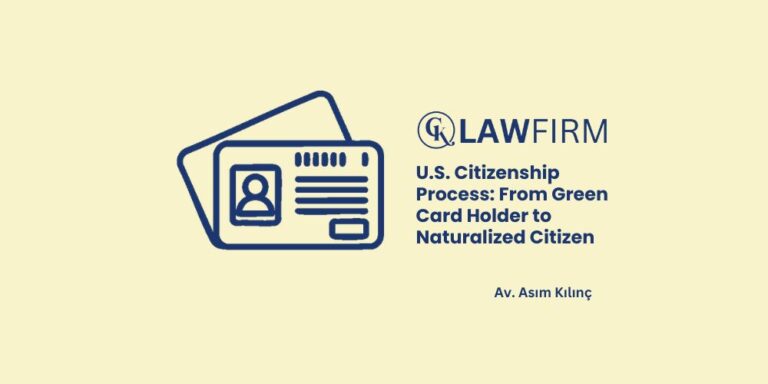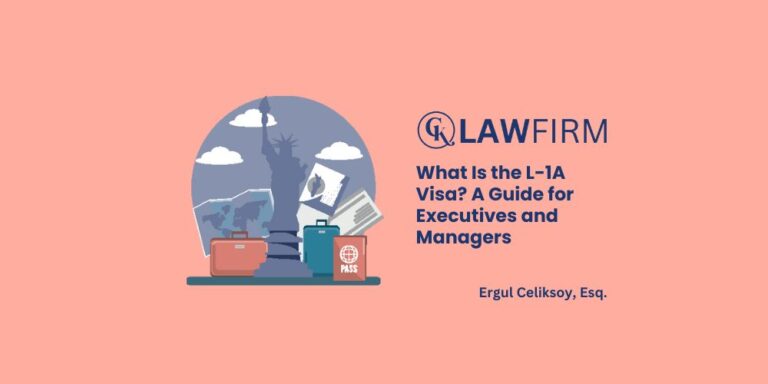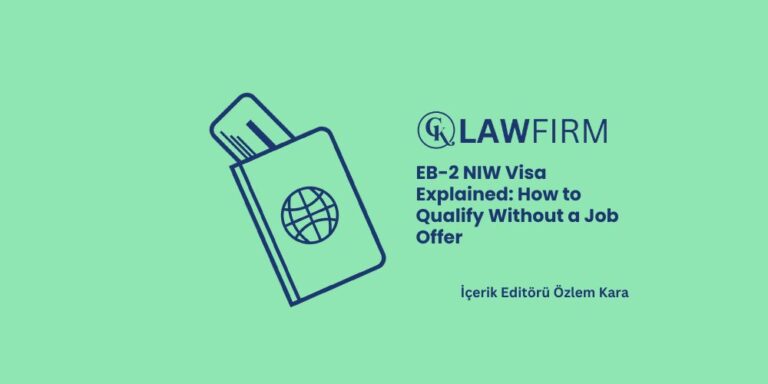Schedule an Appointment with Our Attorneys Now

Working with an F1 Visa
Learn about working with an F1 visa in the U.S. Explore on-campus and off-campus work rules, CPT, OPT, and application processes.
By Asim Kilinc, Immigration Attorney at CK Law Firm
The F1 Visa is a temporary immigrant student visa granted to international students who wish to study in the United States. One of the most frequently asked questions by individuals applying for the F1 visa is whether they can work while holding this visa. In this article, we will answer the following questions:
- What is an F1 Visa?
- How Many Hours Can You Work Per Week with an F1 Visa?
- How to Work On-Campus with an F1 Visa?
- How to Work Off-Campus with an F1 Visa?
If you have additional questions regarding the F1 visa, please do not hesitate to contact me via the comments section below this article, by sending a direct message on LinkedIn, or through the CK Law Firm Immigration Law Firm’s website, where I am a co-founder.
What is an F1 Visa?
The F1 Visa is a temporary immigrant student visa granted to international students who wish to study in the United States. The F1 Student visa indicates that the applicant has been accepted by an educational institution in the United States, can cover their expenses while studying, and will return to their home country upon completing their studies. The accepted institution could be a language school, undergraduate, associate degree, or doctorate program.
How Many Hours Can You Work Per Week with an F1 Visa?
Working hours while studying in the United States on an F1 visa are subject to specific regulations:
On-Campus Work:
- During the Term: You can work up to 20 hours per week.
- During Holidays: You can work up to 40 hours per week during summer, winter, or other official holidays.
Off-Campus Work: Off-campus work permits are generally granted after graduation and under specific programs. However, these work hours are typically subject to similar restrictions and may vary depending on the type of job.
It is crucial to adhere to these hourly limits, as violating them may result in the cancellation of your F1 visa and loss of your legal status in the United States.
How to Work On-Campus with an F1 Visa?
Working on-campus with an F1 visa is a popular option for international students in the United States. On-campus work allows students to earn legally and gain work experience. Here are the steps to work on-campus with an F1 visa:
Identify Suitable Jobs:
- On-campus jobs are positions located within the university’s facilities. These can include working in the library, student center, cafeteria, as a teaching assistant, or research assistant.
Job Application:
- Explore job opportunities through your university’s career center, student affairs office, or online job listings.
- You may need to prepare a resume (CV) and cover letter when applying for jobs. Additionally, some positions may require you to participate in an interview.
Social Security Number (SSN) Application:
- To work legally in the United States, you must obtain a Social Security Number (SSN).
- You can apply for an SSN by obtaining the necessary documents from your employer or student advisor. Typically, you will need your passport, F1 visa, I-20 form, and a confirmation letter from your university.
Work Hours and Tax Obligations:
- Plan your work hours not to exceed the weekly 20-hour limit.
- You may be required to pay taxes on your earnings from on-campus work. Therefore, you may need to file a tax return each year.
How to Work Off-Campus with an F1 Visa?
Working off-campus with an F1 visa in the United States is possible under certain conditions and is generally limited to specific programs.
Curricular Practical Training (CPT):
CPT allows off-campus work as part of your educational program. Internships, cooperative education programs, or on-the-job training can be considered CPT.
Requirements:
- CPT must be directly related to your studies.
- The student must have completed at least one academic year of full-time study.
- You must obtain approval from your academic advisor and your university’s international student office.
Work Duration:
- You can work full-time (more than 20 hours per week) or part-time (less than 20 hours per week) under CPT.
How to Apply:
- Once you find a suitable job for CPT, you must obtain CPT approval on your I-20 form from your university’s international student office.
- Do not start work without providing this approval to your employer.
Optional Practical Training (OPT)
OPT allows F1 visa holders to work off-campus either before or after completing their educational program. OPT is commonly used to gain work experience after graduation.
Requirements:
- OPT must be in a field related to your studies.
- Each student is entitled to a total of 12 months of OPT; students in STEM (Science, Technology, Engineering, Mathematics) fields may be eligible for a 24-month extension.
Work Duration:
- Pre-completion OPT: You can work less than 20 hours per week during your studies.
- Post-completion OPT: You can work full-time after graduation.
How to Apply:
- It is recommended to apply for OPT no later than 90 days before graduation.
- You must submit Form I-765 and other required documents to USCIS to apply.
- Once approved, you can start working on the designated dates.
Severe Economic Hardship
If you face unexpected economic hardship and find that on-campus work is insufficient, you may apply for an off-campus work permit.
Requirements:
- You must have been a full-time student in F1 status for at least one academic year.
- You must demonstrate that off-campus work is necessary due to economic hardship.
How to Apply:
- You must apply to USCIS by submitting Form I-765 with supporting documents.
- You may need to obtain a recommendation letter from your international student office.
- Once approved, you can start working off-campus.
International Organizations
You can obtain permission to work off-campus for certain international organizations. These organizations may include large institutions such as the United Nations.
Requirements:
- The job must be within the scope of an international organization and related to your studies.
How to Apply:
- You should contact your international student office to arrange your I-20 form.
- You must apply to USCIS to obtain a work permit.
Social Security Number (SSN)
- You will need to obtain a Social Security Number (SSN) to work. You may need to obtain the necessary documents from your employer or international student office to apply for an SSN.
Tax Obligations
- You are required to pay taxes on your earnings during the period of off-campus work. It is important to file a tax return each year and pay the correct amount of taxes.
Working off-campus without a work permit can lead to the cancellation of your F1 visa and the loss of your legal status in the United States. Therefore, it is extremely important to follow every step correctly and comply with the law. It is advisable to consult your international student advisor or an immigration attorney for any job opportunities.
Working off-campus with an F1 visa in the United States can be a great way to gain work experience and start your career strong. However, it is important to pay attention to legal requirements during this process.
Feel free to contact us at cklawfirm.org or directly reach out to me on LinkedIn to find out if you qualify for an F1 visa through our free consultation service. All you need to do is send us your resume. We will review it and get back to you within 24 hours.
Who is Attorney Asım Kılınç?
Attorney Asım Kılınç is the co-founder of CK Law Firm and is recognized for his expertise in immigration law and U.S. asylum applications. Kılınç completed his Master’s degree at Southern Methodist University Dedman School of Law and is a member of the Missouri Bar Association, with a focus on U.S. immigration law.
Attorney Kılınç’s extensive knowledge and experience in immigration law have significantly contributed to CK Law Firm’s success in this field. He has actively participated in the preparation of over 1,000 cases, demonstrating his expertise in this area. By providing comprehensive and professional legal support to his clients, he helps them adapt to their new lives in the U.S.
Attorney Kılınç is also well-versed in U.S. asylum applications. He meticulously guides his clients through the process and ensures they receive the best legal advice. He provides top-quality service to clients in matters of citizenship, Green Card, work permits, and other immigration processes, supporting them from start to finish on their journey to U.S. citizenship.
Attorney Asım Kılınç, who solidifies CK Law Firm’s leadership in immigration law and U.S. asylum applications, offers reliable and effective legal consultancy services to clients, assisting them in building a new life in the U.S.





